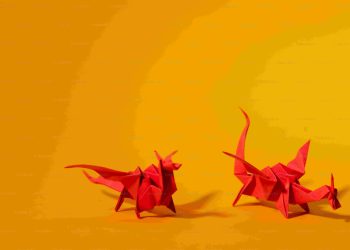Unconventional Thinkers Achieving Greatness
History is rarely made by those who follow the rules.
From groundbreaking innovators to revolutionary leaders, the people who defy conventions reshape industries, societies, and even our understanding of the world. Yet, embracing unconventional thinking is not always easy. It demands audacity, resilience, and a willingness to challenge paradigms that countless others accept as the only way forward.
My own journey toward unconventional thinking began out of frustration. I once worked in an environment where conformity dominated. Creativity was stifled, and independent thought was viewed as a threat. Feeling trapped, I sought inspiration from outside sources: books, conversations, and the stories of trailblazers. Over time, I began to see patterns in their approaches — striking overlaps between the way they lived and their ability to create lasting change.
Breaking Free from Traditional Wisdom
Traditional wisdom often tells us to ‘play it safe,’ ‘go with the flow,’ or ‘stick to the path.’ While steady adherence to standard practices might bring stability, it rarely leads to greatness. Visionary thinkers like Steve Jobs and Albert Einstein didn’t succeed because they followed everyone else’s rules; they succeeded precisely because they refused to accept the limitations imposed by those rules.
Consider Jobs’s famous admonition to “Think Different.” Instead of competing in the crowded field of hardware development, Apple’s focus shifted toward designing products that felt intuitive and human-centered — disrupting an entire industry in the process.
Interdisciplinary Inspiration: The Power of Cross-Pollination
One hallmark of unconventional thinkers is their ability to pull insights from multiple disciplines. Leonardo da Vinci, for instance, blended science, art, and engineering to create inventions and works of wonder centuries ahead of their time. Today, we see similar interdisciplinary brilliance in figures like Elon Musk, who combines engineering, economics, and sustainability to launch cutting-edge projects ranging from Tesla vehicles to SpaceX.
Psychology offers us clues as to why this approach works. An individual who remains siloed within one discipline develops mental blind spots, limiting their perspective. By exploring diverse areas — philosophy, technology, business, or even biology — we can break free from rigid ways of thinking and discover intersections rife with innovation.
The Future of Unconventional Thinking: Predictions for Tomorrow
The professional landscape is evolving at an unprecedented rate. Automation and AI technologies are fundamentally reshaping how we approach work, creativity, and decision-making. In this environment, conventional thinking will experience diminishing returns. Jobs that thrive on consistency and repetition will likely be replaced by machines, leaving human ingenuity to fill the gaps that automation cannot address.
Social trends further emphasize the importance of adaptability and lifelong learning. Gig economies, remote work, and decentralized systems are breaking traditional models of employment and wealth distribution. To navigate these changes, professionals must become comfortable questioning norms and reimagining possibilities.
Strategies to Unleash Your Unconventional Potential
- Embrace discomfort: Growth happens outside your comfort zone; seek challenges that force you to adapt and innovate.
- Surround yourself with diverse thinkers: Build relationships with people from different disciplines, cultures, and perspectives.
- Read widely and deeply: Explore topics outside of your immediate field to broaden your worldview.
- Question assumptions: Don’t accept norms or traditions at face value; ask why they exist and whether they can be improved.
- Create space for reflection: Schedule time to think, experiment, and evaluate new ideas away from distractions.
Why Lifelong Learning is Essential
A commitment to lifelong learning is the cornerstone of unconventional success. Without it, we risk stagnating — becoming complacent in a world that requires constant adaptation. Learning doesn’t always mean attending formal classes or pursuing degrees. It can involve mentorship, curiosity-driven research, or even travel.
Take inspiration from figures like Maya Angelou, who said, “I am always learning something. Wherever I am, there’s a possibility of knowing something I didn’t know before.” Such an attitude opens the door to breakthroughs — both personal and professional.











